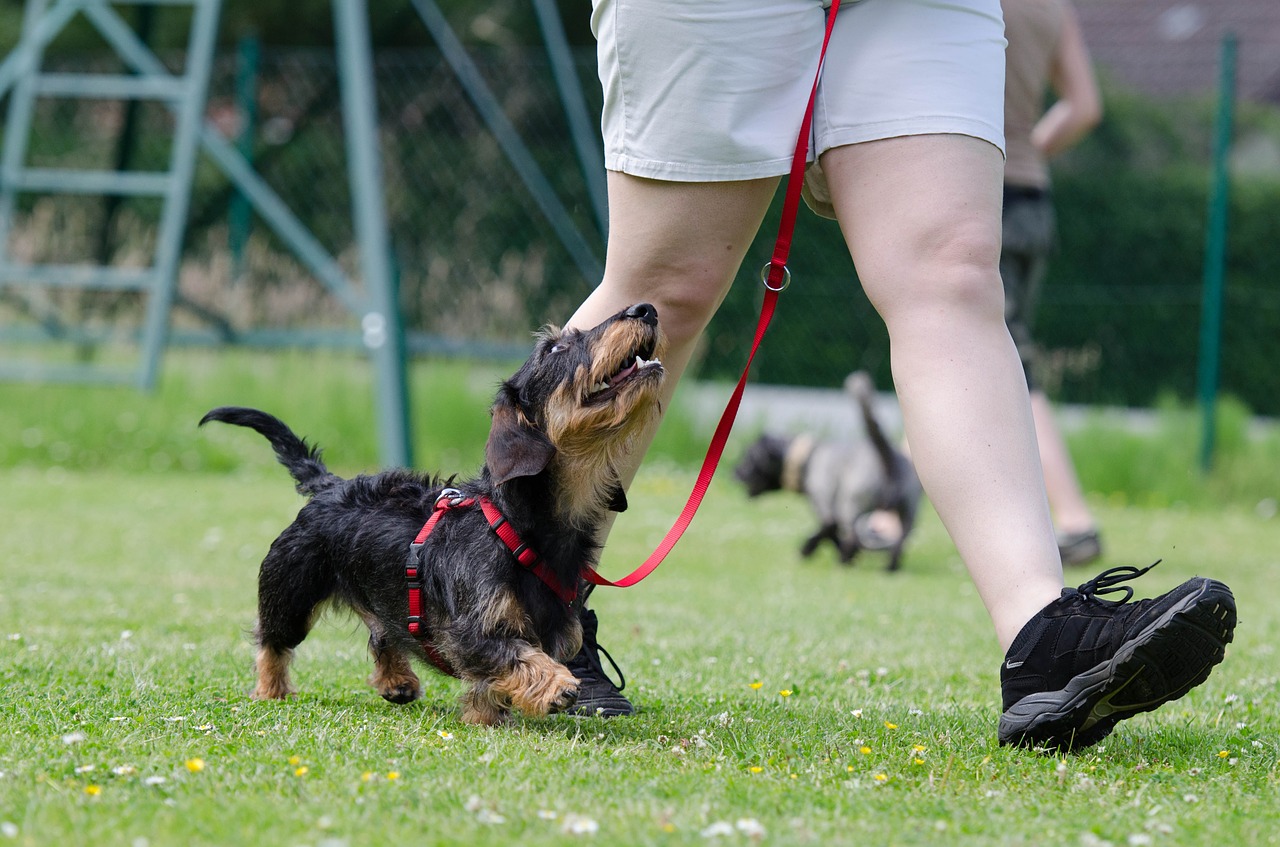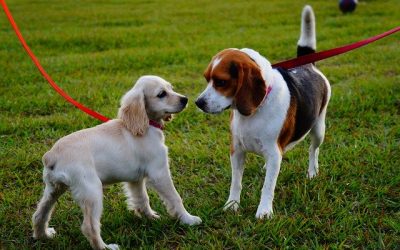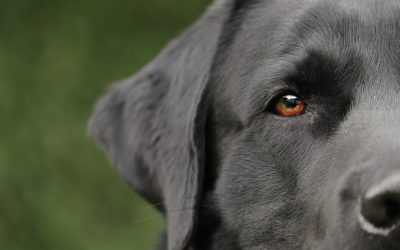From around 5 months to 18 months approx. your puppy will begin his/her move into Canine Adolescence, you can’t stop it. This is the stage between puppy-hood and adulthood.
Your once responsive puppy has gone deaf overnight! All of a sudden he won’t come, won’t sit, won’t settle down and stay. He jumps up, pulls and chews on lead, and has become hyperactive. When you unclip his lead, he bounds around non-stop, as he plays ’catch me if you can’! These bursts of energy require super human stamina.
Your puppy has reached puberty. He feels the need to urinate everywhere, sniffing the rear end of other dogs has become appealing. Your puppy has grown into a teenager.
Physically, your canine companion will be begin loosing his 28 razor sharp puppy teeth, as his adult teeth [42] push through his aching jaws. He needs to chew, preferably on quality chew toys from CENTENARY DOG OBEDIENCE.
The soft fluffy puppy coat is making way for his new mature coat, brush him daily. When hormones take over, dogs react differently [a lot like us humans in many ways] Some dogs cruise through adolescence, some don’t.
Some areas to work on during canine adolescence
Toilet training
Don’t take ‘toilet training’ for granted. By rewarding your pup every time he eliminates in the appropriate area, you’ll convey a message of control and acceptance. He’ll want to toilet, after a nap, after a meal and after a game. Be consistent and watch him.
Bite control
Give your maturing puppy ample opportunity to play with other puppies of various ages, size and temperament. Puppy Pre-School classes are an excellent time to learn to control their bite as they run and play freely. Give your puppy a ‘gentle’ command as you hand-feed him treats in your daily training sessions. This will ensure your adolescent dog maintains a ‘soft mouth’.
Don’t put up with your canine companion ‘teething’ on you! Give him a firm ‘uh’ or ‘no’, or a prod in his shoulder or hip. Your voice tone is assertive when delivering this message.
Dealing with boredom
Save yourself time and anguish, by physically and mentally challenging your canine companion. Tired adolescent dogs, don’t chew. Bored, anxious, or curious dogs who are allowed the run of the house, chew.
Work on your ‘no go ‘ zones
Socializing your dog
Socialization often heads downhill during adolescence, sometimes faster than you can expect.
As they get older, dogs have fewer opportunities to meet unfamiliar people and dogs unless you frequent the off leash parks. Most often the family dog interacts with the same familiar friends and family. He can become intolerant of all but his inner circle of friends. Consequently, many adolescent dogs become progressively de-socialized, they become defensive, lack confidence, bark, back off, snap, snarl and lunge.
Walking your dog frequently
If your dog is in the adolescent stage, walk him everyday. Take a different route everyday, this will stimulate his senses and use up some of his vigor.
Never stop socializing your dog. Successful adolescent socialization is an integral part of responsible dog ownership.
written by Lee Hettiger




0 Comments